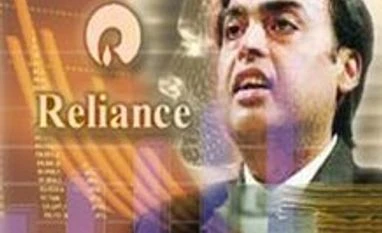Trust Reliance Industries(RIL) to work its way around government agencies. Either it has mastered the art of getting its work done or it has divine intervention at its doorstep.
When former Oil Minister Jaipal Reddy objected to the gas price hike he suddenly found himself to the science and technology ministry under the garb of a cabinet reshuffle. Various ministries objected to the revised high price of gas, saying their sector will be unviable, still the cabinet cleared the file. Even the finance ministry which wanted a ceiling on gas price could not get what it wanted as the cabinet cleared the proposal without any cap on gas prices.
Various other suggestions like Reliance should get the benefit of new prices only after the promised quantity of gas is produced were overlooked.
More From This Section
In the end Reliance Industries got what it wanted.Naturally market and analysts are excited about the deal with the stock closing nearly 5% up at Rs 895.
Just so that the deal does not look one sided, the Union cabinet asked the company to furnish a bank guarantee to cover its liability if gas hoarding charges are proved. This guarantee will be equivalent to the incremental revenue Reliance will get from the new gas price. The guarantee will be encashed if it is proved that Reliance hoarded gas or deliberately suppressed production.
But the amount of guarantee is far less than the amount of gas the company is charged of hoarding.Further, the bank guarantee is only applicable to D1 and D3 fields. The next round of growth in production is expected from other fields that are not included in the bank guarantee. The company has said that its reserves have fallen by 70 per cent from 10.3 trillion cubic feet to 3.1 trillion cubic feet. Production from KG-D6 was around 0.2 TCF in the previous year.
Also it is very difficult to prove hoarding. Reliance has never denied that there is no gas, it has said that geological complexities like high water and sand ingress as well as larger than expected drop in reservoir pressure for the fall in output.
Government has betrayed its leaning towards the company by not allowing a cap on the price of gas. International prices are a function of supply and demand which has no bearing on the cost of evacuating gas. Even at the current rate and depressed production, Reliance is making an operating profit of 24.3 per cent (in September 2013) as compared to 38.4 per cent in the previous year same period, which was on a higher production base.
And analysts have reasons to cheer with the profits likely to see a impact of nearly four times.
Recent news reports also suggests that the company is looking at doubling its production over the next 2-3 years. Even the staunchest Reliance sympathisers would raise their eyebrows over the timing. Expect more surprises in the coming months from the company
)